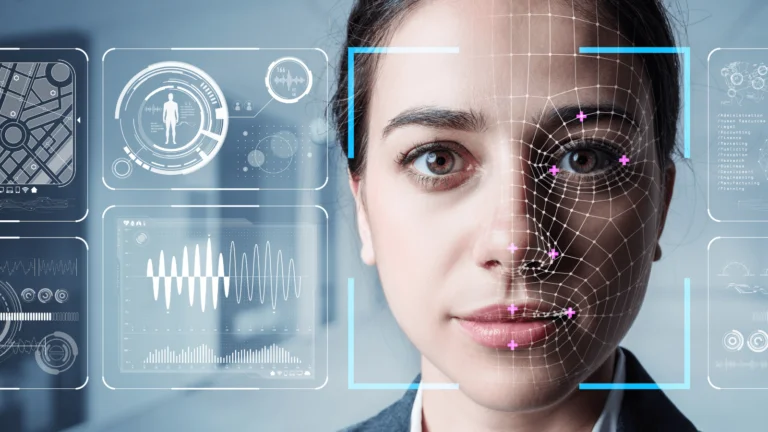Join 34,000+ Traders & Investors by getting our FREE weekly Sunday Cheat Sheet email. Get key market news and events before everyone else. Click Here to See if you Qualify.
Education is a fundamental pillar of society, shaping the minds and capabilities of individuals. It has been the driving force behind innovations and advancements in recent times.
Artificial intelligence (AI) has become as powerful tool with tremendous potential to revolutionize education.
By harnessing the capabilities of AI and other technologies, education can become more personalized, adaptive, inclusive, and globally accessible.
Let’s explore the transformative impact of AI and technology on education, highlighting its various applications and benefits.
Personalized Learning: Tailoring Education to Individual Needs
Are Your Children’s Schools Taking Advantage? 9 Ways How AI Gamification is Revolutionizing Education
- Personalized Learning: Tailoring Education to Individual Needs
- Intelligent Tutoring Systems: Enhancing Learning Support
- Virtual Reality (VR) and Augmented Reality (AR): Immersive Learning Experiences
- Data Analytics and Assessment: Optimizing Educational Outcomes
- Intelligent Content Creation: Engaging and Customized Learning Materials
- Collaborative Learning: Fostering Global Connections
- Adaptive Assessments: Tailored Evaluation of Knowledge
- Accessibility and Inclusion: Empowering Diverse Learners
- Continuous Learning and Professional Development: Empowering Educators
- Conclusion
- Profitable Stock Traders are Using This Tool to “Hack” the Markets
- 8 Cryptos Set to Shoot to the Moon in 2023 – One Small Investment, One Giant Leap for Your Wallet
- 10 Stocks in Bill Gates Stock Portfolio Smart Investors are Buying
- Top 28 Best Stock Market And Investing YouTube Channels Right Now
- Top 6 Personality Traits Of Highly Successful Investors And Traders

One of the most significant contributions of AI in education is personalized learning. By analyzing vast amounts of student data, including learning styles, preferences, and performance, AI algorithms can tailor educational content, pace, and instructional approaches to meet the unique needs of each learner.
Adaptive learning platforms can dynamically adjust the curriculum, providing individualized recommendations, resources, and assessments.
This personalized approach enhances engagement, motivation, and overall learning outcomes. The concept must be more deeply studied and applied across the board.
Intelligent Tutoring Systems: Enhancing Learning Support

AI-powered intelligent tutoring systems are revolutionizing the way students receive support and guidance.
These systems employ machine learning algorithms to understand students’ strengths, weaknesses, and learning patterns.
They can provide interactive and real-time feedback, answer questions, and offer additional resources to facilitate deeper understanding.
Intelligent tutoring systems foster self-paced learning, empowering students to progress at their speed while receiving personalized assistance. Teachers can better understand the needs of individuals and can come up with better teaching methods.
Virtual Reality (VR) and Augmented Reality (AR): Immersive Learning Experiences

Virtual and augmented reality technologies can potentially transform education by creating immersive and engaging learning experiences.
With VR, students can virtually explore historical landmarks, travel through space, or conduct scientific experiments. It will make their experience feel real-life-like.
AR overlays digital information onto the real world, enhancing understanding of complex concepts. These technologies bring abstract ideas to life, enabling students to grasp challenging topics more tangibly and experientially.
Data Analytics and Assessment: Optimizing Educational Outcomes

The abundance of educational data can be harnessed through AI-powered data analytics to gain valuable insights and improve educational outcomes. These techniques can improve education for the masses, not just individuals.
By analyzing patterns and trends in student performance, attendance, and engagement, educators can identify areas that require intervention and provide targeted support.
AI can streamline and automate the assessment process, offering adaptive evaluations that adjust difficulty levels based on student responses.
This approach provides a more accurate and comprehensive assessment of student’s knowledge and skills.
Intelligent Content Creation: Engaging and Customized Learning Materials

AI can assist in the creation of educational content that is engaging, interactive, and customized to individual needs. Natural language processing algorithms can generate dynamic content, adapting it to specific requirements and preferences.
AI can also facilitate the development of intelligent textbooks, which provide interactive exercises, multimedia resources, and personalized feedback. These innovations make learning more enjoyable and effective.
Collaborative Learning: Fostering Global Connections

Technology facilitates collaborative learning, enabling students to connect and collaborate with peers globally. Online platforms offer discussion forums, virtual classrooms, and project management tools that promote teamwork, communication, and knowledge sharing.
AI-powered tools can facilitate effective collaboration, ensuring each team member contributes to their fullest potential. Allow them to partner on experimentation and come up with new ideas. Collaborative learning also prepares students for a globalized world, fostering cultural understanding and cooperation.
Adaptive Assessments: Tailored Evaluation of Knowledge

AI-powered adaptive assessments go beyond traditional standardized tests. By adjusting the difficulty level of questions based on individual responses, these assessments provide a more accurate representation of students’ knowledge and skills.
Adaptive assessments enable educators to identify areas where students excel or struggle, allowing for targeted interventions and personalized feedback.
This approach promotes a deeper understanding of the subject and encourages continuous improvement.
Accessibility and Inclusion: Empowering Diverse Learners

Technology and AI can promote accessibility and inclusion in education. AI-powered tools can provide accommodations for students with disabilities, such as text-to-speech or speech-to-text capabilities. It can also help people in far-off areas where modern education is unavailable.
Digital platforms offer features that cater to different learning styles and preferences, ensuring that diverse learners can access educational content that suits their needs.
Remote education and online learning platforms enable individuals in remote areas or with limited resources to access quality education.
Continuous Learning and Professional Development: Empowering Educators

AI and technology also play a crucial role in supporting continuous learning and professional development for educators. AI algorithms can recommend relevant resources, training programs, and teaching strategies based on individual needs and goals.
Online platforms offer opportunities for educators to connect with peers, share best practices, and access the latest research and teaching methodologies.
AI can automate administrative tasks, allowing educators time to focus on instructional activities and personalized student support.
Conclusion

Integrating AI and technology in education holds immense promise for transforming traditional educational practices. From personalized learning and intelligent tutoring systems to virtual reality experiences and adaptive assessments, technology has the power to revolutionize education.
By harnessing the potential of AI, education can become more accessible, inclusive, engaging, and effective. However, it is crucial to address ethical considerations, ensure data privacy, and balance technology and human interaction to create optimal learning environments.
With careful implementation and thoughtful integration, AI and technology can pave the way for a new era of education that empowers learners and prepares them for future challenges.
Profitable Stock Traders are Using This Tool to “Hack” the Markets

This tool is helping traders beat the market compared to those who have no idea what is. Here are the Top 28 Stock Trading Discord Servers Right Now.
8 Cryptos Set to Shoot to the Moon in 2023 – One Small Investment, One Giant Leap for Your Wallet

These are 8 cryptocurrencies you need to know about before you miss out on the next boom. 8 Cryptos Set to Shoot to the Moon in 2023 – One Small Investment, One Giant Leap for Your Wallet
10 Stocks in Bill Gates Stock Portfolio Smart Investors are Buying

We share the top 10 stocks that Bill Gates owns that smart investors are buying right now. 10 Stocks in Bill Gates Stock Portfolio Smart Investors are Buying
Top 28 Best Stock Market And Investing YouTube Channels Right Now

The best investors are always learning. YouTube is one of the best free resources to learn from experts. Here are the top 28. Top 28 Best Stock Market and Investing YouTube Channels Right Now
Top 6 Personality Traits Of Highly Successful Investors And Traders

From Warren Buffett to Ray Dalio. We breakdown the top 6 common traits the most successful investors and traders have. Top 6 Personality Traits Of Highly Successful Investors And Traders
This Options Discord Chat is The Real Deal
While the internet is scoured with trading chat rooms, many of which even charge upwards of thousands of dollars to join, this smaller options trading discord chatroom is the real deal and actually providing valuable trade setups, education, and community without the noise and spam of the larger more expensive rooms. With a incredibly low-cost monthly fee, Options Trading Club (click here to see their reviews) requires an application to join ensuring that every member is dedicated and serious about taking their trading to the next level. If you are looking for a change in your trading strategies, then click here to apply for a membership.
